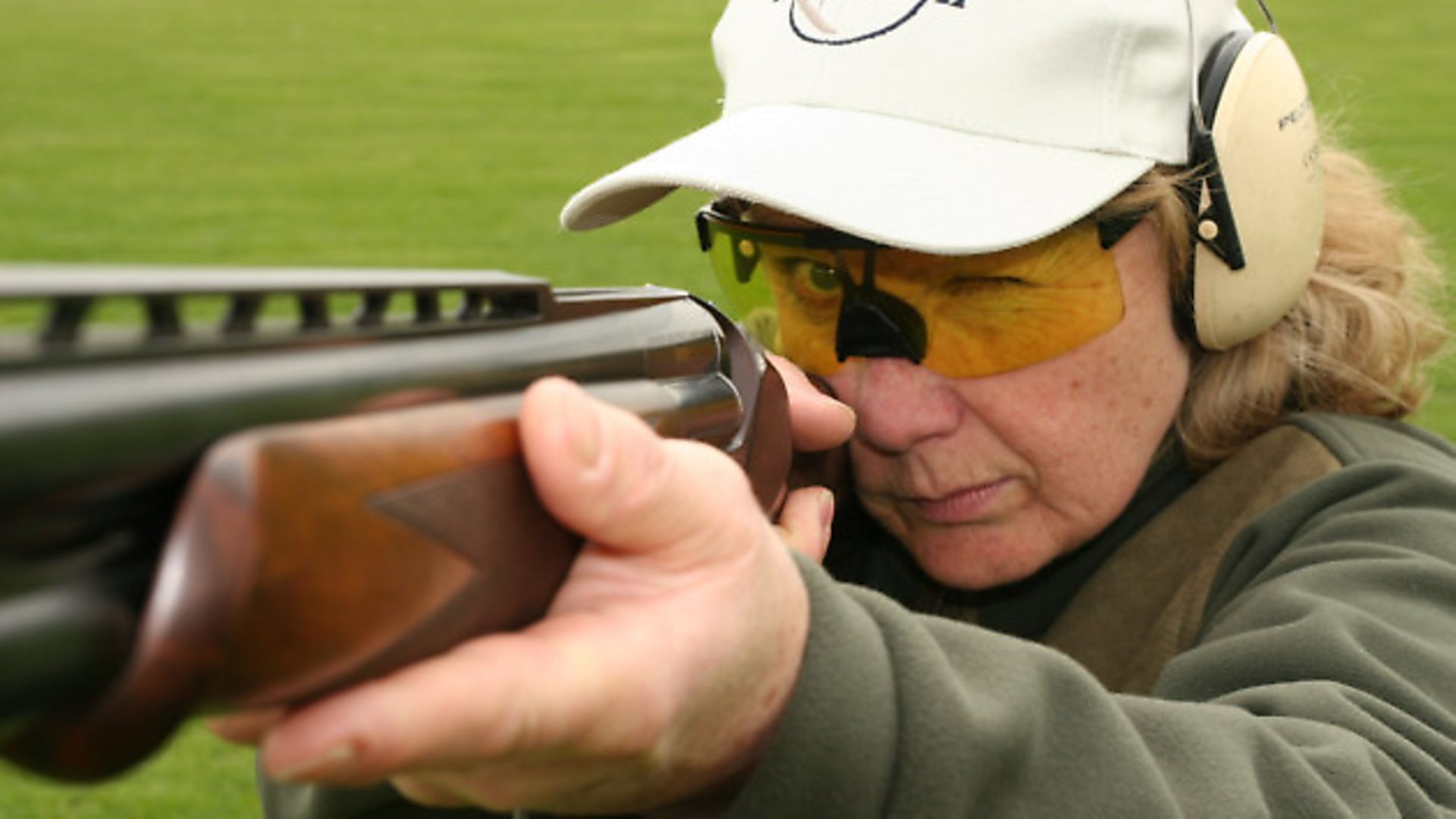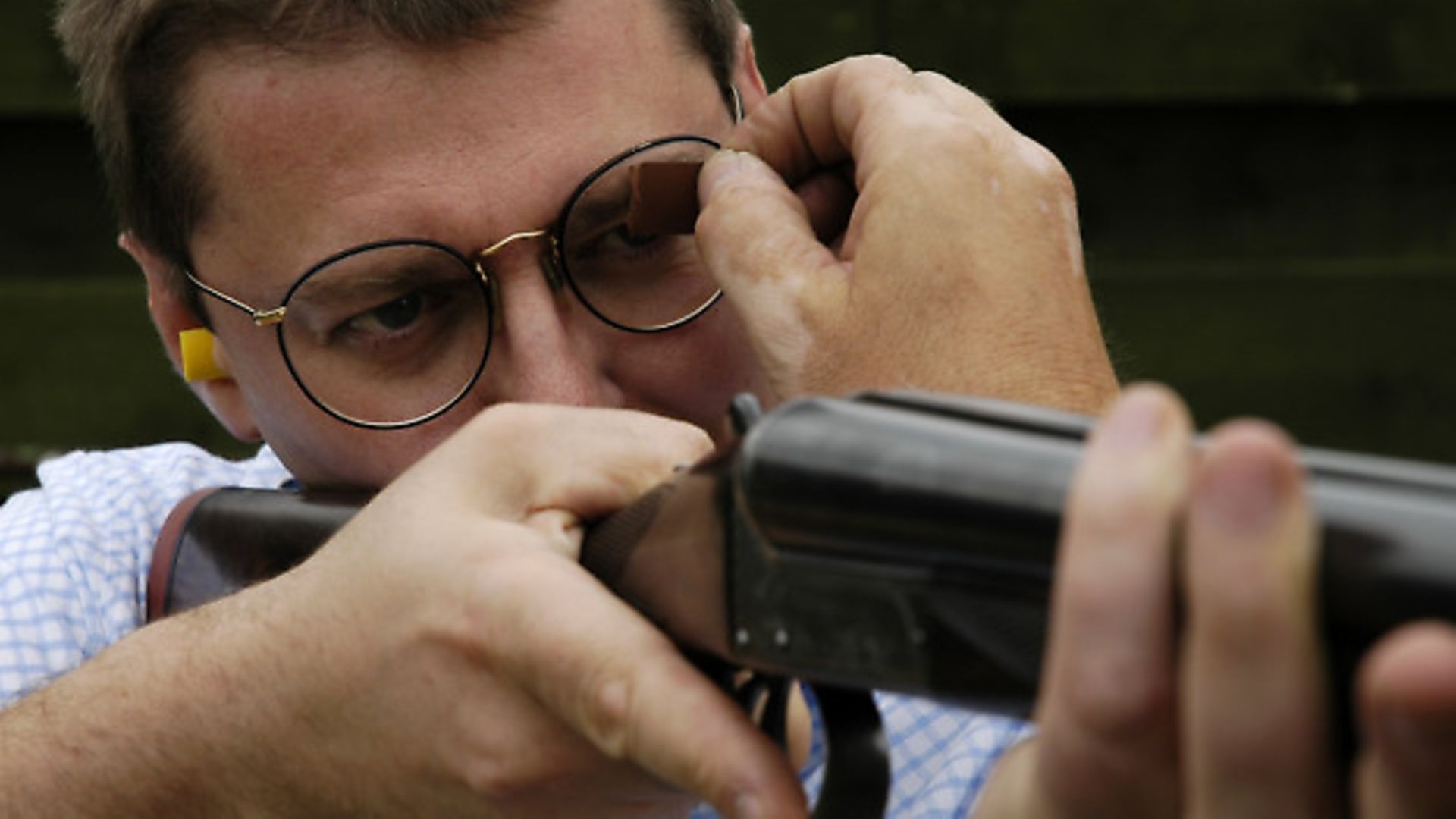Learn how to find your dominant eye and what to do if you think you might have the “wrong” dominant eye
 credit: Archant
credit: Archant
Determining which of your eyes is the dominant one is absolutely essential – fail to do so and you will find aiming hard and hitting the target an almost impossible feat. In day-to-day life our brain takes the picture from each eye and matches them up so that we can determine the placement and distance away of objects that come into our sight path. Things change when we want to use just one eye, i.e. to line a gun up to a target. In this situation, one eye will take control, making it the dominant eye. The problems tend to start when a shooter is right-handed, therefore mounting the gun on his right shoulder and trying to aim with his right eye, but he actually has a dominant left-eye; although the bead will look as if lined up with the target, he will actually be aiming way off to the left.
Finding your master eye
A shooting instructor will get you to point a finger at his eye; he can immediately see which eye you are using to line up your finger. He might do the same with a mounted gun – having first checked and shown you that it’s empty – to see which eye you are using to point the gun.
Taking expert advice is the best way to learn how your master eye is affecting your shooting, and what you should do about it. But there’s no harm in carrying out a little experiment of your own. Here’s an easy and reliable method. Fold a piece of paper in half and half again, then snip off one corner to make a hole in the centre of the paper. Open it out, and look at a spot in the distance – the far side of the room, or across a field, it doesn’t matter. Now without thinking too hard about it, bring the paper up six inches or so in front of your face and look at the object through the hole.
Without realising it, your brain has chosen one eye or the other to look through – it can’t see the object with both eyes. Cover first one eye and then the other, and you’ll quickly discover which eye your brain chose to use. That’s your master eye, simple as that. If it’s the same side that you mount the gun, congratulations, you don’t have the classic ‘wrong’ master eye.
 credit: Archant
credit: Archant
Sorting out the problem
If you suspect you have a master eye problem, it’s best to seek expert advice sooner rather than later. Worrying about it will only undermine your confidence, which does your shooting no good at all – and you could be reinforcing bad habits.
Make sure your eyes are working as they should – visit an optician, get an eye test, and follow their advice on the right glasses or contact lenses to correct your vision. Some opticians specialise in shooting and other sports, and they will understand your needs better than the average high street optician.
Then go to a shooting instructor, open your mind and your ears, and listen to his advice! Too often people seek advice but only hear what they think they already know. The instructor may suggest closing one eye as you mount the gun, or sticking some tape over the lens in front of your non-aiming eye. Or he may suggest something else entirely. Try it, it’s just possible he knows what he’s talking about!
It could be something else...
Don’t be too quick to assume you have a master eye problem. If you aren’t aligning the gun properly, the cause is often something else entirely. For instance, if you mount the gun too high against your cheek, the action will block your view along the rib. Your other eye will take over, and effectively take on the role of ‘master eye’ – the human body is wonderfully adaptable like that. Another complication is that some people don’t have one eye massively stronger than the other. Like being ambidextrous, your brain may decide to be left-dominant one day and right-dominant the next. It may dither and end up splitting the difference between the two, or it may change depending on how tired you are.
That’s why it’s best to seek professional advice, rather that trying to diagnose the problem yourself or, just as bad, relying on the ‘experts’ at the club whose well-intentioned but dodgy advice could be setting your shooting back years!